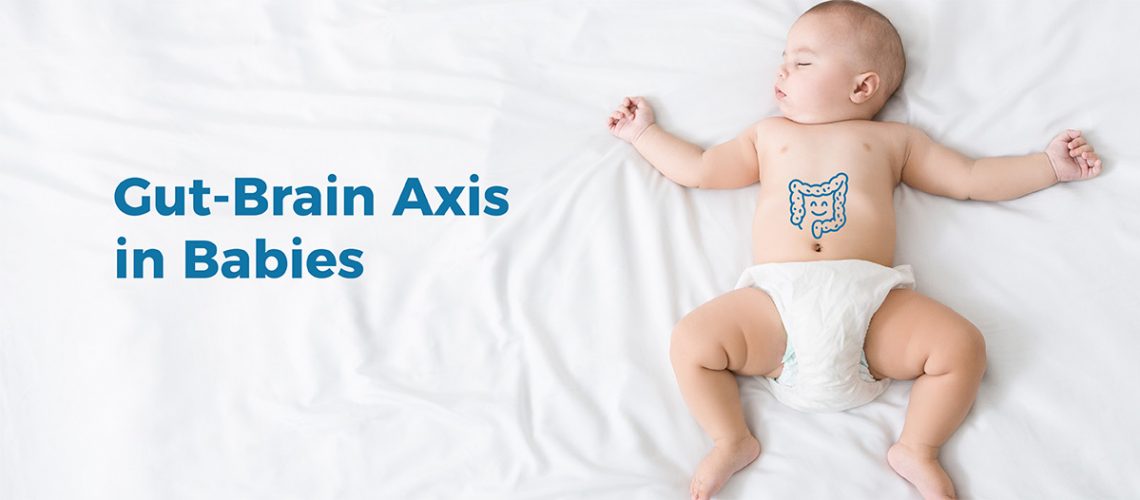Digest This
Click on the topics below to learn how probiotics can improve your digestive health, naturally.

Gut-Brain Axis In Babies
- @drHoberman
- Children’s Health, Digestive Health, Mental Health
Your Baby’s Developing Gut-Brain Axis
As adults, we know our gut-brain axis — the connection that links our brain, intestines and emotions — is working and when it isn’t.
When those signals between the brain and gut get scrambled, something as simple as eating a highly processed, fast-food diet creates disruptions in the delicate balance of bacteria in our guts that can soon lead to obesity and lots more stress in our lives.
You may be surprised to learn that the gut-brain axis is at work even at the beginning of our lives as infants, and it’s noticeable when it isn’t.
If you’re a new mom who wonders why her newborn may be more fearful and fussier than you expected, it may be linked to the diversity of your baby’s gut and how it may shape their developing gut-brain axis.
The Fear Factor
Looking for new ways to support healthy neurological development, researchers at Michigan State University and the University of North Carolina teamed up for a study to compare fearful reactions experienced by infants to the balance of bacteria in their developing microbiomes.
Reacting to fearful things is a normal part of infant development. But, when those responses continue even in safe situations, that could signal an elevated risk of your baby developing anxiety and depression later on in life, says Dr. Rebecca Knickmeyer of Michigan State, leader of the study published in Nature Communications.
To learn how infant gut microbiomes were connected to the fear response, investigators conducted a year-long study with 30 infants who were breastfeeding and hadn’t been prescribed antibiotics.
Scientists evaluated the mix of gut bacteria based on stool samples taken from infants at 1 month and 12 months and assessed their fear responses with a simple test: Watching how each baby reacted when a stranger entered a room wearing a Halloween mask.
Parents were with their babies the whole time and they could jump in whenever they wanted, Knickmeyer says. “These are really the kinds of experiences infants would have in their everyday lives.”
No surprise, newborns who were more fearful at age 1 had very noticeable imbalances in gut bacteria at 1 month compared to those whose microbiomes remained stable. But that’s not all.
Using MRI imaging of those children’s brains, researchers discovered the diversity or lack of it in their developing guts was linked to the size of their amygdala, the sector of the brain responsible for making quick decisions about potential threats.
The Future Of Your Baby’s Gut
The results of this report highlight how important it is to protect the balance of bacteria in your baby’s gut, even when they breastfeed, and avoid antibiotics, for the sake of their developing gut-brain axis.
This may be a good time to talk to your pediatrician about giving your baby’s gut some extra help in the form of a probiotic
If you’re looking for an easy-to-use probiotic with the right mix of beneficial bacteria from the Lactobacillus and Bifidobacterium families plus a prebiotic that feeds the good guys in their gut, we hope you’ll consider EndoMune Jr. Powder.
Just a half-teaspoon of EndoMune Jr. sprinkled in your baby’s formula or added to soft foods (when your baby is ready) once a day can make a healthy difference.
Resources
There Is An Endomune Probiotic For Every Lifestyle
-
EndoMune Metabolic Rescue
$44.95 -
EndoMune Advanced Probiotic
$42.95 -
EndoMune Companion Pack
$112.93









